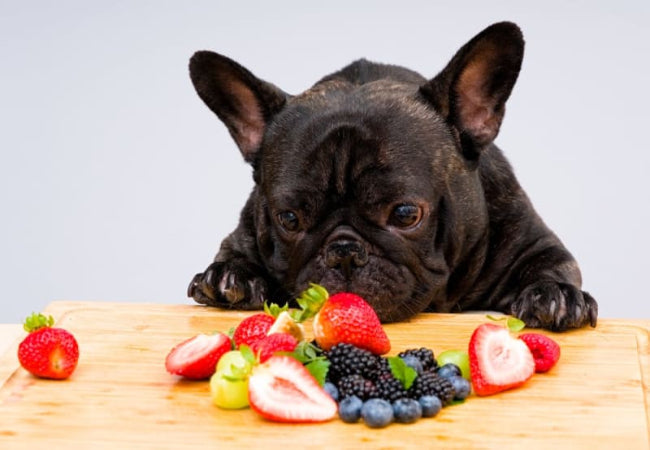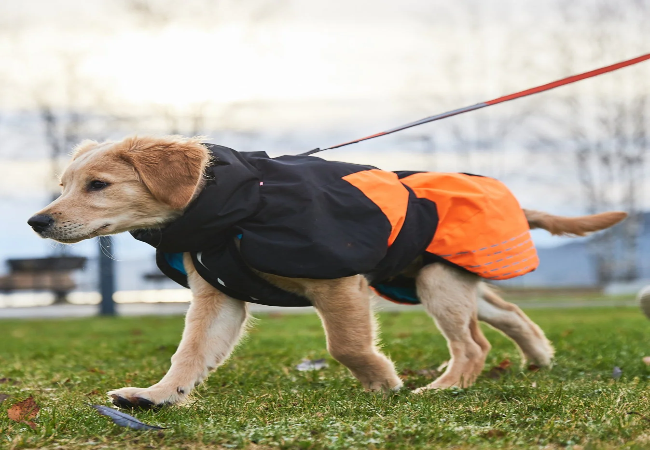Fruits Dogs Can & Cannot Eat 2025: Vet-Approved Complete Guide 🍎✨

In this article
Fruits Dogs Can & Cannot Eat 2025: Vet-Approved Complete Guide 🍎✨
By Dr. Duncan Houston BVSc
Dogs are omnivores, which means they can enjoy a varied diet including meats, grains, and some fruits and vegetables. Fruits can be a healthy and tasty treat for your dog, but not all fruits are safe. Knowing which fruits are beneficial and which can be harmful is essential for keeping your furry friend healthy.
✅ Safe Fruits for Dogs
These fruits are generally safe when given in moderation and can provide essential vitamins, minerals, antioxidants, and fiber:
-
Apples: Remove seeds and core. Rich in fiber and vitamin C.
-
Blueberries: Packed with antioxidants and low in calories.
-
Strawberries: High in vitamin C and fiber; serve in small pieces.
-
Watermelon: Remove seeds and rind; hydrating and low in calories.
-
Bananas: A great source of potassium and fiber.
-
Oranges: Safe in small amounts; high sugar content means moderation is key.
-
Pears: Remove seeds and core; good for fiber and vitamins.
-
Peaches: Flesh is safe, but remove the pit to avoid cyanide exposure.
Tip: Introduce any new fruit gradually to ensure your dog does not have digestive issues or allergies.
⚠️ Fruits That Can Be Harmful or Toxic
Some fruits contain substances that are toxic or dangerous to dogs, even in small amounts:
1. Grapes and Raisins
-
Can cause sudden kidney failure.
-
Symptoms include vomiting, lethargy, irregular heartbeat, and, in severe cases, kidney failure.
-
Avoid completely.
2. Seeds and Pits (Apples, Cherries, Peaches, Apricots, Mango)
-
Contain amygdalin, which releases cyanide when digested.
-
Cyanide poisoning can cause dilated pupils, red gums, difficulty breathing, panting, and shock.
-
Always remove seeds and pits before feeding these fruits.
3. Mango Pits
-
Can cause choking or digestive blockage.
-
Small amounts of cyanide are present in the pit.
-
Only the flesh is safe after removing the pit.
4. Avocado
-
Pit, skin, and leaves contain persin, which can cause vomiting and diarrhea.
-
The fatty fruit itself may upset the stomach and potentially cause pancreatitis.
-
Avoid feeding large portions.
5. Tomatoes
-
Ripe fruit is generally safe.
-
Green tomatoes, leaves, stems, and unripe fruit contain solanine and can be harmful.
⚖️ Feeding Fruits Safely
-
Treat fruits as occasional snacks, not staples.
-
Cut fruit into small, manageable pieces to prevent choking.
-
Always remove seeds, pits, and rinds that could be toxic or cause blockages.
-
Monitor your dog for any signs of digestive upset after introducing a new fruit.
-
Consult your veterinarian if you are unsure about a specific fruit.
🐾 Key Takeaway
Fruits can be a healthy and delicious treat for dogs when served safely. Stick to dog-friendly options, remove seeds and pits, and always feed in moderation. Avoid toxic fruits like grapes, raisins, and avocado, and your furry friend will enjoy safe and nutritious fruity snacks!



